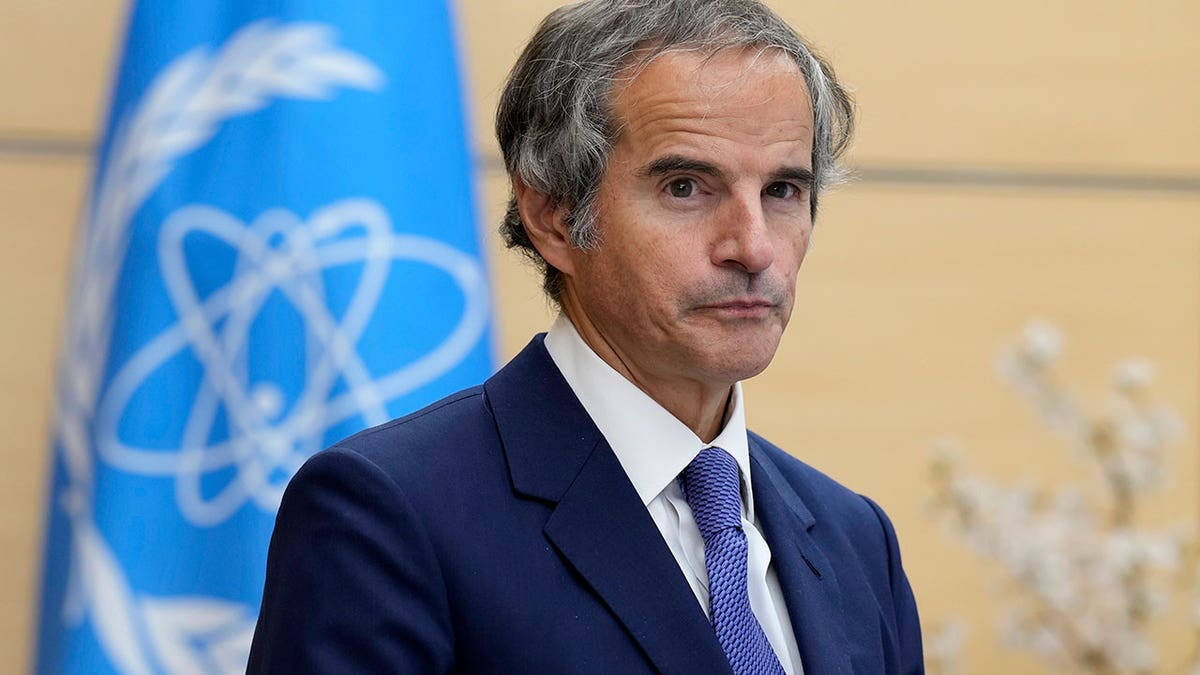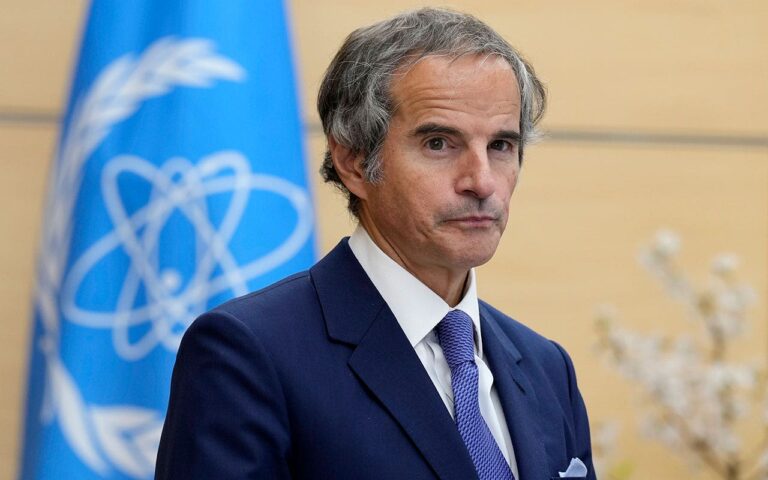- Rafael Mariano Grossi, the head of the United Nations atomic watchdog, visited Iran on Monday,
- Grossi warned that Iran has enough enriched uranium to potentially create several nuclear bombs.
- Challenges include uncertainties over clandestine enrichment activities and disruptions to oversight by the International Atomic Energy Agency.
The head of The United Nations’ The atomic watchdog visited Iran on Monday, where its agency faces growing difficulties monitoring the Islamic Republic’s rapidly advancing nuclear program as tensions remain high across the Middle East. East because of the war between Israel and Hamas.
Rafael Mariano Grossi has already warned that Tehran has enough uranium enriched to near-nuclear weapon levels to make “several” nuclear bombs if it chooses to do so. He acknowledged that the agency cannot guarantee that none of Iran’s centrifuges were removed for clandestine enrichment.
These challenges are now mixed with attacks between Israel and Iran, with the city of Isfahan apparently under Israeli fire in recent weeks, despite being surrounded by sensitive nuclear sites. Grossi will likely attend a conference on Iranian nuclear power during his two-day trip to Iran.
UNITED NATIONS HEAD CALLS FOR REPAIRS TO “OVERCOME GENERATIONS OF EXCLUSION AND DISCRIMINATION”
“The problems will not go away,” Grossi said at a meeting of the Board of Governors of the International Atomic Energy Agency in March. “It’s only going to get worse. So we need to address this problem seriously.”

Director General of the International Atomic Energy Agency Rafael Mariano Grossi is seen at the Prime Minister’s Office in Tokyo, Japan on March 14, 2024. (AP Photo/Eugene Hoshiko, swimming pool, file)
Iranian media said Grossi, who arrived in Tehran, would meet Iranian Foreign Minister Hossein Amirabdollahian on Monday afternoon. Grossi will travel to Isfahan on Tuesday before returning to Vienna, where he plans to brief journalists.
Tensions have increased between Iran and the IAEA since then-President Donald Trump unilaterally withdrew America from Tehran’s nuclear deal with world powers in 2018. Since then, the Iran has abandoned all limits on its program and is enriching uranium to 60% purity, close to weapons-grade levels of 90%.
IAEA surveillance cameras have been disrupted, while Iran has excluded some of the agency’s most experienced inspectors.
CONCERNED ABOUT IRAN’S NUCLEAR ACTIVITIES AS UN WATCHDOG WARNS OF LACK OF TRANSPARENCY
Meanwhile, Iranian officials have increasingly threatened to acquire atomic weapons.
“For us, making the atomic bomb is easier than not building the atomic bomb,” said Mahmoud Reza Aghamiri, chancellor of Tehran’s Shahid Beheshti University and a specialist in nuclear physics.
Iranian media quoted Aghamiri acknowledging that Iran’s Supreme Leader, Ayatollah Ali Khamenei, had previously said that building an atomic bomb was prohibited.
“But if his fatwa and his point of view change, we will also have the capacity to build the atomic bomb,” Aghamiri added.
Aghamiri’s comments follow other drumbeats from Iranian lawmakers, members of the paramilitary Revolutionary Guards and a former head of the Atomic Energy Organization of Iran, suggesting Tehran could make the bomb.
For years, Iranian diplomats have viewed Khamenei’s preaching as a binding fatwa, or religious edict, that Iran would not build an atomic bomb.
“We do not need nuclear bombs. We do not intend to use a nuclear bomb,” Khamenei said in a speech in November 2006, according to a transcript from his office. “We do not claim to dominate the world, like the Americans, we do not want to dominate the world by force and need a nuclear bomb. Our nuclear bomb and explosive power are our faith.”
CLICK HERE TO GET THE FOX NEWS APP
But such edicts are not set in stone. Khamenei’s predecessor, Grand Ayatollah Ruhollah Khomeini, issued fatwas that revised his own earlier statements after he came to power following the 1979 Islamic Revolution. And anyone who wanted to follow the 85-year-old Khamenei as leader of the country could issue its own fatwas by revising those previously issued.
Meanwhile, tensions between Iran and Israel have reached a new peak. Tehran launched an unprecedented drone and missile attack on Israel after years of shadow war between the two countries that came to a head with Israel’s apparent attack on an Iranian consular building in Syria, killing two Iranian generals and others.
Israel’s own nuclear weapons program, widely known by experts but never acknowledged by the country, did not deter the Iranian attack. And now experts are increasingly suggesting that Iran could pursue the bomb itself after a major attack on it.
“With a small open attack by the United States and Israel on Iranian soil, I think Iran will carry out its first atomic test,” analyst Saeed Leilaz said in April.


